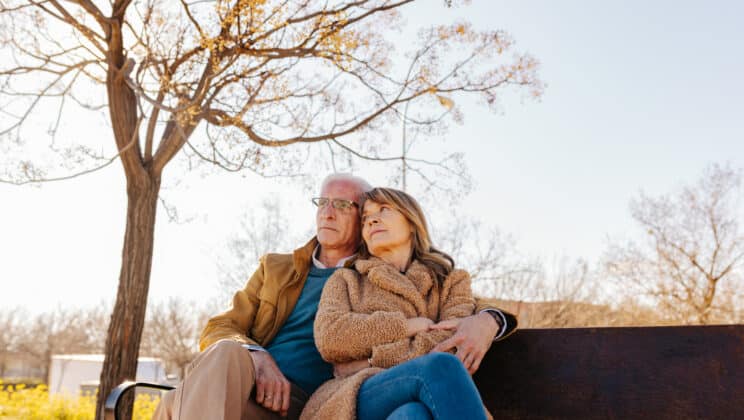Self-Care for Black Americans Amid Race-Based Traumatic Stress
June 19, 2020
Before writing this piece, I took an informal survey of several friends and colleagues who identify as Black or African-American. Given the most recent racial injustice, the high visibility of viral videos and social media saturation of any and all things race-related, the psychologist in me had two questions for them.
First, “How are you doing?” And second, “How are you managing?” I wish I were surprised to find that almost all of the responses I received could be summarized with two phrases: “I have no idea,” and, “Terribly.”
With renewed conviction to see my friends, family members, and colleagues faring better emotionally and physically despite their stressful surroundings, I compiled the following definitions and strategies. I hope that these insights will spark conversations, reflections and/or behavioral shifts that change the answers to the aforementioned questions I continue to pose.
Why does self-care matter?
Before discussing how to care for oneself, it’s important to first understand why self-care is so critically needed. Right now, many people in the Black community are, in a word, stressed. More specifically, Black Americans are experiencing what psychologists refer to as race-based traumatic stress. According to Thema Bryant-Davis, PhD, associate professor of psychology at Pepperdine University, this type of stress can be defined as “an emotional injury that is motivated by hate or fear of a person or group of people as a result of their race (or racism) that can:
- Overwhelm a person’s capacity to cope
- Cause bodily harm or threatens one’s life integrity
- Cause fear, helplessness, or horror"
Research shows that this stress can leave African Americans with physiological and psychological symptoms resembling post-traumatic stress disorder, or PTSD. Unfortunately, these types of emotional injuries occur with disheartening regularity and over time, can create chronic stress.
Chronic stress is linked to a myriad of physical health conditions, including but not limited to: hypertension (high blood pressure), heart disease, weight irregularities, stroke, high blood sugar (type 2 diabetes), and high cholesterol. According to the federal Department of Health and Human Services’ Office of Minority Health, African Americans experience disproportionately higher rates of all the aforementioned conditions, which is no coincidence.
Most of these health risks associated with chronic stress are also considered underlying health conditions that put people at higher risk for severe illness after contracting COVID-19. Brothers, sisters–these data points matter because this type of continual, hard-on-the-body-and-brain stress response causes real and significant harm to our entire well-being.
In other words, self-care and coping in adaptive and healthy ways is critical to protecting, and even prolonging, our lives. So, what does it mean to engage in self-care? First, let’s start with what it doesn’t mean.
Self-care is NOT:
- Self-indulgence
- A rationale for reckless or impulsive behavior
- Justification for poor choices or disengagement from the world around you
- “Psychobabble” from your psychologist
- A leisurely life of pedicures and movies
Self-care IS:
- Awareness and attunement to your internal and external needs and wants
- The ability to act on this awareness in ways that preserve and/or improve your mental, physical or emotional state
- Acting in ways that promote healthy boundaries for yourself and others
Self-care is not always a natural tendency or encouraged by others. In fact, self-care can be particularly difficult for individuals in the Black community for several specific reasons. Here are just a few.
- Historically, African Americans’ emotional and physical state has been sacrificed to maintain the racial hierarchy in the U.S. Many of us have internalized that sacrifice and the belief that our internal and external needs are not worth acknowledging or tending to, and that belief has been passed down from generation to generation. Instead, many of us spend our time serving others and cannot imagine a life in which we are consistently served, even by ourselves.
- Many African Americans were not socialized or parented in ways that explicitly taught self-awareness or self-care. In fact, many of us received messages antithetical to this practice and learned unhelpful coping mechanisms such as avoidance, suppression, or self-medication.
- There may also be a general lack of awareness and ability to easily identify one’s own needs and internal state that prevents use from practicing self-care.
Tangible tools for self-care
These complex and understandable difficulties can leave many convinced that learning how to care for oneself is overwhelming, confusing and potentially draining in and of itself. But the key to learning this skill is to start with manageable, realistic, achievable plans of action.
Let’s dive into a few.
1. Increase awareness of your internal states
You cannot care for emotional states of which you are not aware. Take the time to check in with yourself, scan your body, and reflect on your emotional and physical state(s). Monitor the parts of your body you know tend to hold stress (such as tension in your shoulders) and simply notice when and where that occurs. Allow time in your schedule to sit with and label your emotional states so you can better respond to them.
2. Exercise the power to choose
Remember that you have complete power and agency to choose whom you confide in and with whom you interact. Know that you also have the power to choose how much media you consume. There is more drain on the psyche than you might think in scrolling through posts, opinions and images of lost Black lives. Unapologetically turn off the television and/or log off of the internet for however long you need to manage your stress.
I acknowledge that, to some, this may initially seem “irresponsible” or “selfish” with such a need for increased awareness and advocacy for racial justice. I know that it can seem like an obligation to remain “plugged in” so you do not miss anything or anyone. However, I am confident that the world will continue to revolve on its axis if you choose to spend a few hours (or even days) without social media access or compulsive article reading. Fight the lie that it won’t by giving your mind (and your eyes) a break.
3. Exercise the freedom to “culturally turtle-shell”
Choose to primarily engage in places and spaces that are physically safe, familiar, and culturally congruent. Some examples of this might include:
- Staying at home with family
- Consuming some of your favorite, most comforting media created primarily for and by Black Americans (Living Single reruns, anyone?)
- Not engaging with requests to converse
- Organizing virtual hangouts with those who share your racial identity and any other identities that are important to you. For example, a meetup of Black men raising sons could be validating, normalizing and healing.
- Engaging in events related to social justice
4. Tackle the trifecta
Make sure to address the self-care trifecta: sleep, diet and exercise. Treat your body well; nourish it like it was made on purpose and with purpose. Fight the lie that Black bodies aren’t worth treating well by starting with your own.
5. Give yourself permission to say, “This is too much”
Allow for days and times when your internal state brings tough, exhausting feelings and responses. You have permission to not always make the best, most rational choice. While it could be labeled “unhealthy”, it could also be labeled “realistic” or “human.” Eat the doughnut. Don’t work out for a day or two. Choose not to engage in a shame spiral if you occasionally exhibit behaviors that just help you get through the day.
Secondly, you also have permission to decline invitations to places and spaces that would feel ostracizing, potentially micro-aggressive and/or unsafe. Given the complex nature of racial injustice and illness anxiety during the current pandemic, you have permission to say no to group gatherings or protests in service to your individual stress and comfort level. You can also choose to decline invitations for no other reason than that you simply don't want to go. Fight the lie that Black bodies are obligated to be in certain spaces and places.
6. Engage in all that is therapeutic, including therapy itself
One of the most obvious self-care strategies for this counselor is, well, counseling. Fight the lie that mental health care services are not for people of color. Beyond that, engage in practices that feel nourishing, refreshing, and healing to you. There are many daily activities that can feel therapeutic, from journaling or spending time outside to cooking or prayer.
Unsure where to start? Sit and reflect (make a list if it’s helpful) on the things you find most fulfilling and enjoyable. The Liberate app offers meditations and talks specifically designed to support Black, Indigenous, and People of Color (BIPOC). And the following podcasts are great resources for supportive, skilled, and strategic guidance around healthy healing practices for the Black community:
- Celeste the Therapist
- Food is Not Bae
- Hats Off Podcast
- Naming It
- Talking Off the Couch
- The Bodyful Black Girl Podcast
- The Evolving Chair
- What’s the Remedy
Community, let’s join in the fight for our lives by acknowledging and labeling our stress and caring for ourselves better. We can do this. Black lives (and minds) truly do matter. Fight the lie that they don’t, starting with yourself.
Author’s note: This content does not fully explain or define self-care and should not be considered a complete list of self-care strategies guaranteed to eliminate any and all emotional distress. Many of the tips outlined, while not a replacement for counseling or therapy, arise from professional and personal insight and would likely be encouraged or introduced by licensed mental health professionals.
CONTACT US
If you need support with stress, anxiety, depression, or other mental health issues, Lyra can connect you to a behavioral health solution that is right for your needs. You can get started today if Lyra is offered by your employer. Sign up now.
And check in frequently here or follow us on Facebook, LinkedIn, and Twitter for more insights into optimal well-being.
ABOUT THE AUTHOR
Dr. Andrea Holman serves as an associate professor of psychology at Huston-Tillotson University. She currently serves as co-chair of the health and wellness working group for the city of Austin's task force on Institutional Racism & Systemic Inequities. She primarily engages students in the classroom and conducts research understanding the psychological experience of African Americans, specifically the complexities of racial identity and cultural mistrust and their impact on interracial interactions.
Explore additional blogs

Mental health tips
How Radical Acceptance Can Decrease Your Stress

Mental health tips
Empty Nest Syndrome: Missing Them, Finding You

Mental health tips